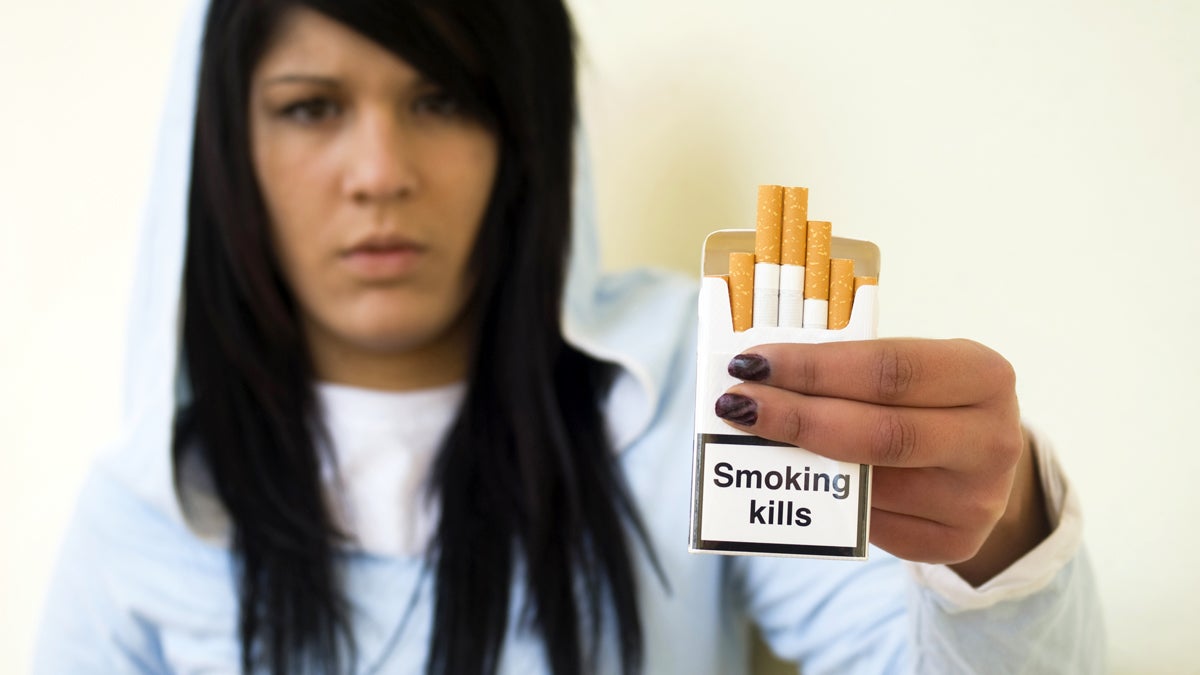N.J. last in nation on funding tobacco-prevention efforts
 Photo via ShutterStock) " title="sssmokingx1200" width="1" height="1"/>
Photo via ShutterStock) " title="sssmokingx1200" width="1" height="1"/>
(Photo via ShutterStock)
New Jersey is last in the nation when it comes to spending on smoking-prevention programs. A new report on funds awarded in a settlement with tobacco companies examines spending on treatment and prevention programs in budget year 2014.
Tobacco companies spend a little over $170 million a year to market their products in New Jersey, according to Ethan Hasbroucke, New Jersey State advocacy director for the American Cancer Society Action Network. About 16 percent of high school students smoke in New Jersey, while about 17 percent of adult residents are smokers.
Meanwhile, the state has spent nothing for two years running on programs to help smokers quit or prevent kids from picking up the habit.
“After the 1998 state tobacco settlement, New Jersey was spending $30 million a year on tobacco-prevention programs. But this number has been steadily cut for years, and now the state spends no money at all,” Hasbroucke said.
The settlement with tobacco companies included $246 billion spread out over 25 years for the states involved.
In the last budget year, Delaware ranked third in the country with outlays of $8.3 million.
“We are pleased that Delaware decision makers have prioritized tobacco prevention and cessation and that has been a consistent approach we’ve taken as a state for a number of years,” said Dr. Karyl Rattay, director of Delaware’s Division of Public Health. “We still do have pretty high levels of tobacco use, like many states. More than one fifth of adults and many youth are using tobacco.”
Pennsylvania, which receives around $300 million a year as part of the Master Settlement Agreement, spent $5 million in fiscal year 2014, ranking 39th in the nation. The $5 million represents about 3 percent of the Centers For Disease Control and Prevention’s recommendation for the state.
In September, Pennsylvania’s settlement allocation was reduced by 60 percent in an arbitration for the state’s failure to tax loose leaf tobacco as part of the agreement.
The national report was released released by a coalition of public health organizations.
WHYY is your source for fact-based, in-depth journalism and information. As a nonprofit organization, we rely on financial support from readers like you. Please give today.




